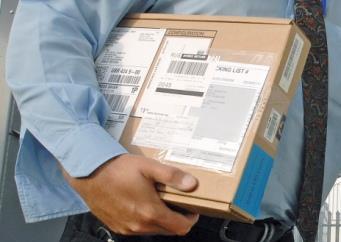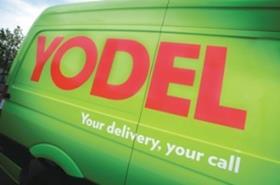
The surge of e-retailing is presenting parcel carriers with a conundrum: how do carriers profit from the rapid surge in B2C volumes, while ensuring their networks are able to cope with capacity demands? Hayley Pink reports
Peak period capacity is at breaking point, City Link MD David Smith warned an industry conference in June, with the 2012 Christmas period posing a record challenge for carriers and retailers alike.
Smith says there has been no new capacity in the industry since 2008, with most major players, including City Link, Yodel and Royal Mail, slashing their networks or absorbing growth. “The majority of companies are close to full,” he says. “There are individual pockets of capacity but, generally speaking, that is the case. Secondly, prices have come down and continue to be suppressed. I foresee a difficult Christmas ahead.”
Yodel marketing director Adam Smith takes a similar stance. “The parcel sector is at capacity during peak trading, which is effectively limiting the further growth of online retail. As an industry, there needs to be further investment to support the future success of online retailing and we need to work closely with retailers to plan this,” he says.
Smith says the run-up to Christmas has seen massive volume hikes compared with the rest of the year, with Yodel’s clients’ parcel volumes increasing two-and-a-half times during the peak and in a few cases there have been 11-fold volume hikes. “This means, as an industry, we need to establish an infrastructure that can cope with these demands,” he says.
And the rapid surge in the B2C sector is indeed demanding. Research released earlier this year by parcels management firm Global Freight Solutions (GFS) revealed that while in 2000 B2C traffic accounted for only 10% of overall volumes in November and December, by 2011 the proportion it generated had risen to 37%. GFS predicts that by 2016 about 4.75 million parcel deliveries will be generated a day, with B2C volumes rising to match those of the B2B sector.
“The parcels industry is experiencing tremendous change and that brings both challenges and opportunities,” says GFS director Simon Veale. “Everything that we’re seeing from carriers and clients reinforces the forecast we made at the start of the year about the effect that e-commerce will have on UK parcels volumes over the next five years.”
He adds that the sector has already responded with ways of increasing capacity and flexibility to suit retailers and consumers, which has created a raft of alternative delivery schemes such as locker boxes and Click and Collect. “There’s no doubt in my mind that these will become increasingly popular as consumers become more aware of more and different ways in which they can receive their online purchases,” Veale says.
Same-day specialist CitySprint says it has experienced phenomenal growth in its retail sector business over the past few years, with 28,000 deliveries in 2010 rising to 500,000 in 2011 – a 1,630% increase. It predicts volumes of more than 1.5 million deliveries by the end of 2012. Head of retail Darren Taylor says: “The rise of online shopping and customer demand has prompted a lot of retailers to re-evaluate their delivery options, so this sector represents a big opportunity.”
DPD is another parcels firm eagerly tapping into the blossoming B2C market, and has been adapting its business to keep pace. The company says it had traditionally focused on the B2B market, but that B2C is now a major growth area, requiring a different operational response and major investments in infrastructure, technology and staff.
“We’ve spent a lot of time looking at what online retailers and home shopping customers wanted from a delivery company, what annoys them and what makes them happy,” says marketing director Tim Jones.
Flagship product
The company says its flagship product Predict, which offers a one-hour delivery slot for customers, gives it an advantage in the retail sector and it has continued to enhance the service in the past year, including: removing the text charge for retailers, introducing Predict Collections, and launching a mobile website for smartphone users, which was used by more than one million customers in the first six months following roll-out.
Parcels giant Yodel has been aggressively reshaping its business model to make it flexible enough to cope with B2C requirements and predicted volumes growth. While it has been drastically downsizing its infrastructure of fixed-capacity service depots in the past year, it has also been increasing the number of self-employed, local couriers in its network.
“This gives us greater flexibility to respond to daily and seasonal peaks in volume and allows us to provide a service where parcels are held locally, rather than going back to service centres, so that customers can contact the courier directly to arrange delivery at a convenient time,” says Smith.
Yodel is also introducing pre-delivery SMS and email alerts for customers this autumn, as well as moving to a standard six-day week to increase its customer service offering. However, to meet retailer and consumer requirements for flexibility, the parcels firm announced it would be raising its rates from 1 August.

“We are confident the changes we are making will provide retailers with the service that their customers want and enable us to meet demand now and in the future,” Smith adds.
Yodel’s CollectPlus joint venture is also gathering pace since its launch last year, with its network of 4,700 counters located in local shops now increasing to more than a third of the size of the Post Office’s estate.
“CollectPlus has had a strong 12 months; it has significantly increased its parcel volumes and is now on a run-rate of five million transactions a year. Revenue has also increased fourfold in the past financial year,” says a company spokeswoman.
The company says the growth in its store network has been supplemented by contracts with an increasing number of retailers who want to use the service to handle returns, as well as for customer collections via Click & CollectPlus. “With research indicating that 72% of online shoppers are unwilling to travel more than five miles to collect goods ordered online, retailers are seeing the value of the CollectPlus network, which offers 85% of UK urban residents access to a store within a one-mile radius.”
Shop-within-a-shop
Hot on CollectPlus’s heels is the new Hermes Parcel Shop operation, launched in June, which will also see a network of shop-within-a-shop facilities rolled out across the UK’s major population hotspots.
Hermes chief executive Carole Woodhead tells MT there are 530 Parcel Shops, located across the 25 biggest conurbations across cities, with another 500 launched in time for the Christmas peak later this year. When completed, the roll-out will see a network of between 3,000 and 4,000 Parcel Shops in cities and suburbs.
“We’re starting it in an aggressive manner because we believe you have to have scale. But you’ve also got to have the right quality, so one of the things we’ve been particular about is to vet every Parcel Shop. There is about a 30% rejection rate because sites haven’t met the criteria we’ve set, such as car parking and opening hours,” she says.
Woodhead says the new service is a strategic investment allowing the home-delivery specialist to tap into the potential of multichannel growth generated by the retail sector. “To us, multichannel is about delivering to homes, to Parcel Shops, to retail stores, to places of work. We are building a solution that allows us to do all of this within the next five years.”
Technology is key
Irish parcels giant Nightline believes that competition has driven down prices at a time when input costs are increasing. Coinciding with this is the unprecedented demand for extra capacity at peak times fuelled by a surge in e-commerce, and a desire from consumers for greater flexibility in how they receive parcels and return unwanted goods.

“To my mind, those challenges can only really be answered by a fundamental shift in how B2C parcel traffic is handled and that can only be achieved by greater automation,” says chief executive John Touhy.
The Dublin firm is rolling out its Parcel Motel concept across Ireland, a network of secure locker boxes where consumers can have their goods delivered by e-retailers for collection when it is convenient. It has teamed up with Polish firm InPost for the operation, which has helped pioneer a successful market for the service across Europe.
A pioneer of the drop box concept in the UK, ByBox plans a £2m investment to expand its UK network of 400 sites in railway stations, supermarkets, storage sites and petrol stations to about 900 by the end of the year.
ByBox chief executive Stuart Miller says the concept is liberating consumers from the shackles of traditional delivery. “It’s hardly surprising that the ByBox network is expanding at a time when traditional express parcel carriers are struggling to make a profit – shoppers are demanding better delivery options. They don’t want to wait in for parcels and they don’t want to miss deliveries.”













